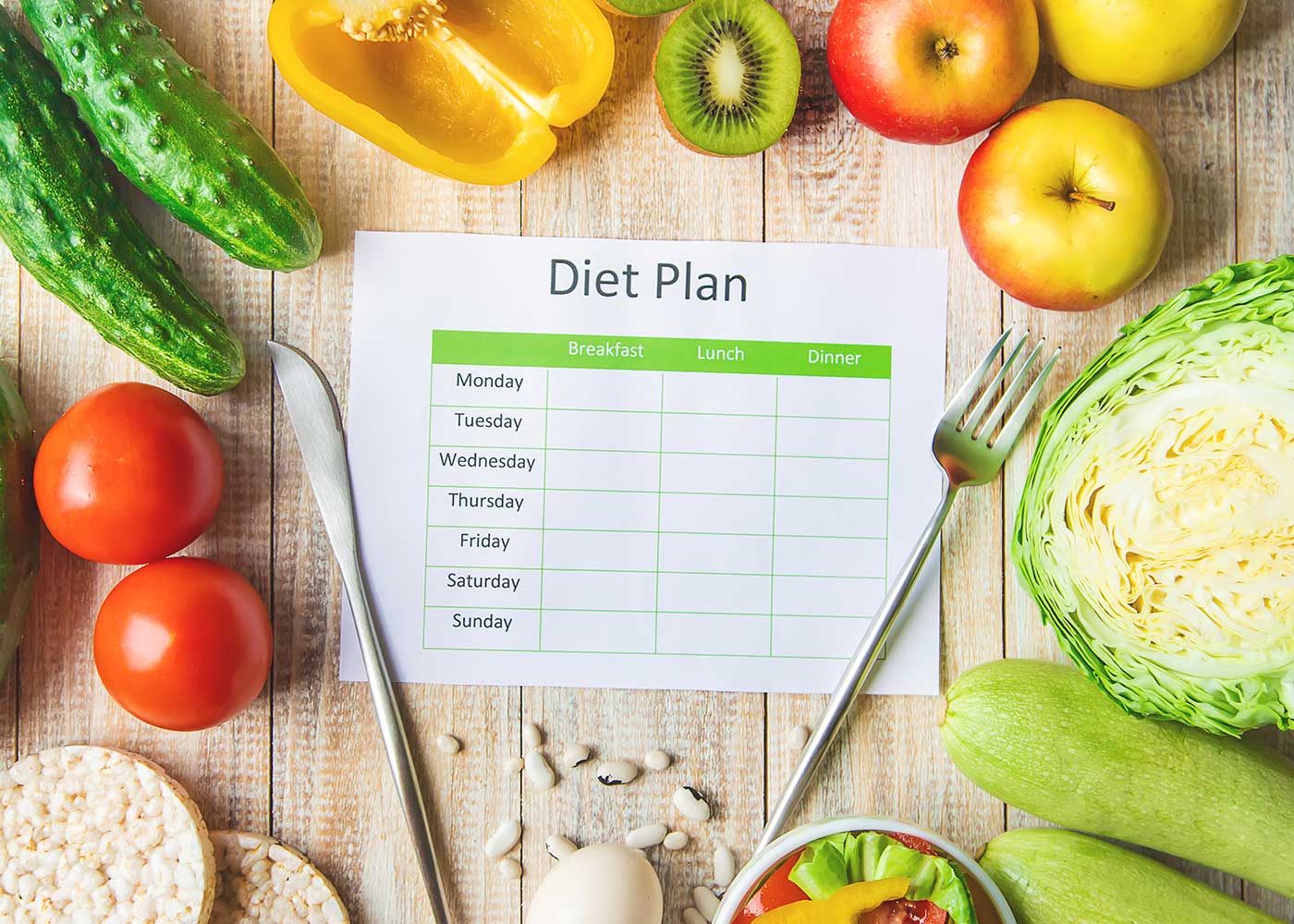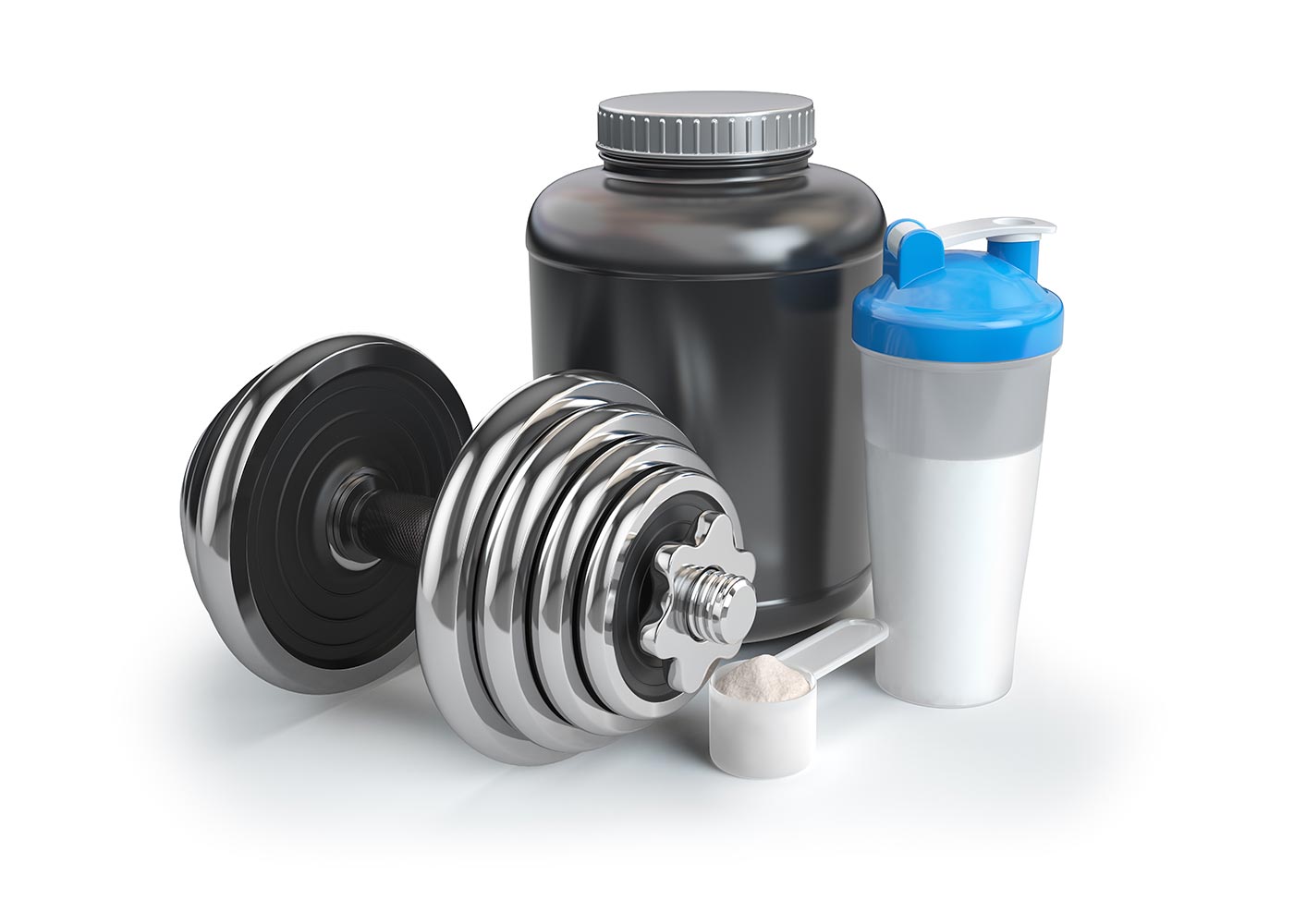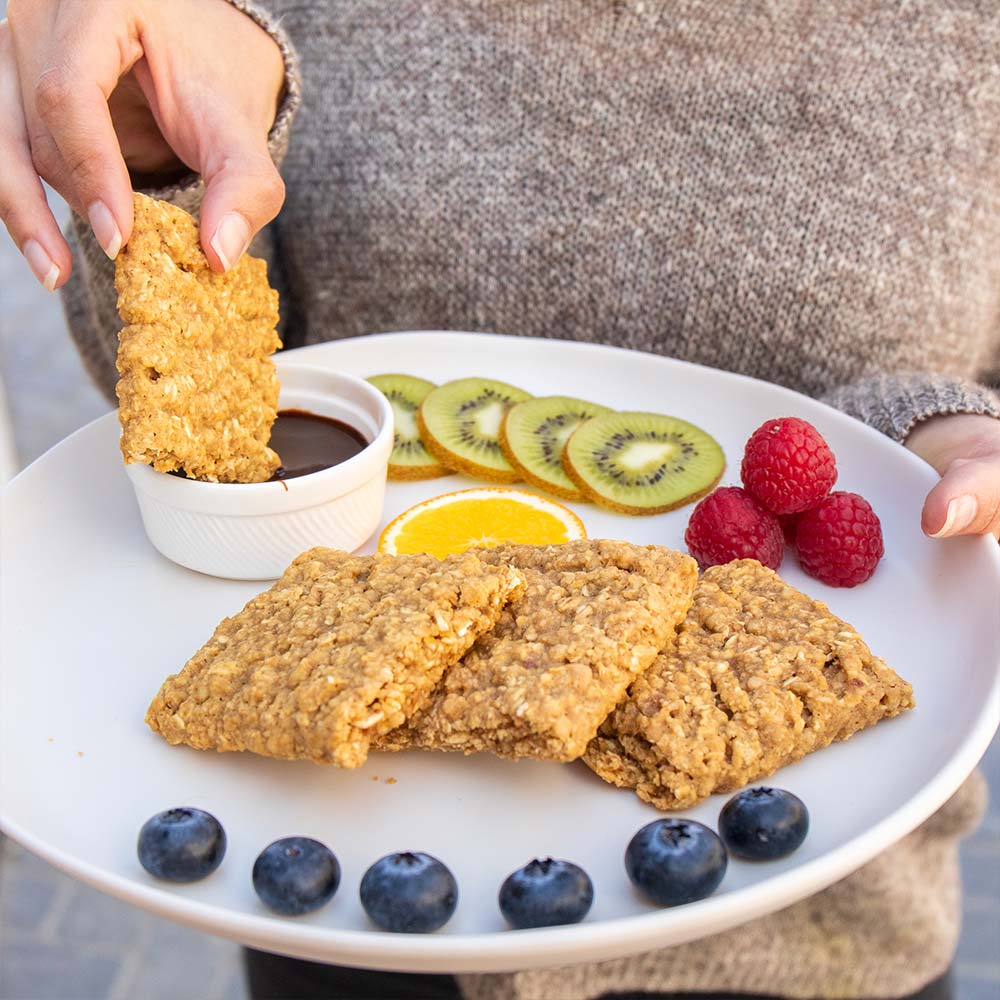Every child is expected to gain some weight at some point during their growth and development. But for some, achieving this at a healthy rate can be quite a challenge. Although there is a worrying rise in the number of overweight and obese children, many kids still need help gaining weight.
There may be various causes of underweight in a child you care for or for your own child. There are things you can do to aid them if it's because they aren't getting enough calories.
To encourage healthy growth, it's critical that kids get the proper caloric, nutritional, and mineral intake.
The good thing is that you can increase their calorie intake by changing the foods they eat and drink and by promoting healthy behaviors.
Make Sure your Child is not Underweight.
Determining whether your child is underweight might be challenging. Changes in routine, illness, and growth spurts can all significantly affect a child's weight.
Making a body mass index (BMI) calculation for them is a smart place to start.
The outcome for your child will be expressed as a centile (or percentile), which indicates whether or not they are a healthy weight for their gender, height, and age.
You'll need to know their birthdate, height, weight, and the measurement you took of them.

Adding Healthy Weight
Many parents believe that their children don't eat as well as they would want, but unless they are not gaining weight properly, it may not actually be a problem. Be aware that being thin and being underweight are not the same. Encourage healthier nutrition if your child is skinny and consumes a lot of junk food, and consider giving them a multivitamin if you believe they may be deficient in certain vitamins.
According to research, children who have trouble gaining weight, including those who eat only certain foods, are more likely to experience negative effects on their diet, growth, physical activity, and general health.
Children who are underweight, picky eaters, those with long-term medical disorders who might require a particular diet, and those who use medications that might impair appetite are some examples of kids who really need assistance gaining weight.
For some children taking stimulants to treat attention deficit hyperactivity disorder (ADHD), such as Adderall XR, Concerta, or Vyvanse, gaining weight can be difficult. These drugs frequently suppress appetite, making food less alluring to children. It may be beneficial to change the medicine or adjust the dosage.
Regardless of the cause, some basic suggestions for healthy weight gain can include not skipping meals and eating four to five little meals per day rather than attempting to eat three larger meals since your child is probably not going to eat them all. Encourage your children to have one or two regular, healthful snacks each day.
Avoid high-energy, low-nutrient foods, such as junk food, and beverages with empty calories, such as sweets, chips, and soda. Eating foods rich in vitamins, minerals, and other nutrients that are also heavy in calories, such as whole milk, yogurt made with whole milk, and peanut butter.
Avoid low-energy or non-energy-containing beverages like Diet Coke and fruit juices since they can make you feel full without offering many calories or nutrients. Limit liquids at mealtimes as well to prevent your youngster from feeling overly full and not wanting to eat enough food.
Most crucial, persuade your child to eat at the times they are most hungry and to at least partake in a meal rather than skipping it entirely if they are not.
You may encourage healthy weight increase in your child with the proper nutritious foods. Here are some of the finest options for making meals and snacks for your child that are filling and encourage weight loss while still being high in nutrients and calories.
Before making significant dietary changes for your child, always consult with their pediatrician to see if doing so is advised.

Foods that Promote Healthy Weight Gain
Consider all the food groups when trying to change the weight on the scale. Although that may be their preferred option, it's not the only thing that will make your child gain weight. More calories than you might expect might be found in several fruits and vegetables as well.
The Top Seven Foods To Help Kids Gain Weight.
Any of the following foods should be tried:
1. Potatoes
The carbohydrates in potatoes are turned into glucose, which your body uses as fuel. A person’s body will convert any glucose in it into fat for use, which often results in children gaining weight. Given its abundance in carbohydrates, amino acids, and dietary fiber, this common vegetable makes it healthy to gain weight. In addition, kids love it and find it to be delicious. You can either stir-fried them with a little seasoning or mash them up and serve them as a side dish. You can also give your child the sweet potato, which is this vegetable's other well-liked variation. From wholesome sweet potato soup to sweet potato pancakes, pick what your youngster enjoys. Due to their abundance in starchy carbs, they can help kids gain weight quickly.

2. Eggs
The most reliable source of proteins, vitamins, and heart-healthy fats is considered to be eggs. The most popular healthy foods for kids to gain weight are these. They support healthy weight maintenance as well as balanced weight increase. Eggs not only contribute calories to your child's diet, but they also assist the vital growth of the brain and nervous system. You're okay as long as your child has a boiled egg for breakfast every day.
3. Bananas
The fastest source of energy and a great supply of nutritious carbohydrates for gaining weight are bananas. Since a banana typically contains 105 calories, it is the go-to snack for practically everyone, including energetic young children. Additionally, this adaptable fruit can be eaten straight up, in milkshakes, fruit salads, or creamy desserts. They are easily accessible and affordable on the Indian subcontinent; known as one of the finest foods for children to acquire weight.
4. Dairy Products
Essentials such as milk, cheese, and butter should be included in every child’s food package. The calcium found in milk helps to maintain your child's general health by promoting the development of strong bones. To achieve their objective and acquire weight, be sure to offer your infant at least two glasses of milk each day. You can make sure kids get their regular supply of milk in the form of cereal or milkshakes rather than offering them plain milk. Additionally, butter is the primary food source of good fats that hasten weight gain.
5. Chicken and other lean meats.
It is well known that chicken is a good source of protein and that it helps people of all ages grow muscle. The best technique to make your child gain weight without having them look flabby or overweight is through this form of healthy fat gain. The best thing about chicken is how simple it is to prepare and how popular it is with most non-vegetarians.
6. Dried fruit
All of our ancestors had faith in the therapeutic properties of dry fruits. One of the healthiest foods for kids to acquire weight is this one. These magical concoctions not only contain an abundance of essential nutrients, but they are also high in fiber and will provide your infant with a much-needed calorie boost. They are also known to strengthen your child's immune system. The dry fruits can be given to your child as a snack while watching TV or combined to produce a homemade powder that can be offered with milk. There are a ton of options, from cashews and almonds to dates, apricots, and pistachios!
7. Oats
Oats have a wide range of nutritional advantages in addition to assisting children in gaining weight. They are helpful for promoting regular bowel movements and preventing constipation because of their high fibre content. Because they are so rich in iron, zinc, magnesium, and thiamine, they are one of the best dishes to have first thing in the morning. Oats are the solution to all of your food-related problems, whether you're looking for a one-year-old's meal plan or a nourishing diet for your school-age child.

Reasons Why Your Child May Need to Gain Weight.
There are various reasons why children are underweight, and many of them are connected to three words that may sound a little frightening: lack of success.
This medical word, which has no clear explanation and does not refer to a disease, usually describes a child's poor growth as a result of malnutrition.
Failure to thrive in infants may result from issues with nutrition, such as:
- breastfeeding latching issues
- a formula ingredient allergy
- reflux
- all of these situations may cause a child's growth to lag.

Failure to flourish can occur in kids of any age because of:
- a sickness caused by an undiscovered food allergy or intolerance.
- oral issues.
- gastrointestinal disorders.
- difficulties with behavior, development, or the nervous system.
Additionally, certain drugs are infamous for suppressing appetite, resulting in weight loss or plateaus in children's weight.
Drugs like Ritalin, Dexedrine, and Adderall that are used to treat attention deficit hyperactivity disorder (ADHD) in children are particularly well recognized for their side effect of decreased appetite. Consult with your child's pediatrician if you have any concerns about how your child's medications may be influencing their appetite or rate of weight gain. Never stop taking any drugs suddenly.
Your child's gradual weight gain may occasionally be caused by their not consuming sufficient calories for their ages. Kids who are active and growing may need more calories than you think. For instance, preteen boys frequently require as many calories as adults.
The Centers for Disease Control and Prevention (CDC)Trusted Source defines "underweight" as being in the bottom fifth percentile of the growth chart, just for the record and your own piece of mind.
The good news is that, as a parent, you have a lot of influence over one key component in healing, regardless of the source of your child's gradual weight gain: their food. The greatest place to start is with a calorie-dense, nutrient-rich eating habit.
You can also serve as an example by choosing nutritious foods and modeling healthy eating habits.

When To Stop Being Concerned With Your Child's Growth.
It is only normal to pay attention when a plot point on your child's growth chart deviates from what you anticipated. But it's common for the growing process to vary in various ways.
Instead of focusing on a single low weigh-in during a well-child appointment, pediatricians often consider your child's weight progress over time. They can also direct your household efforts toward assisting your youngster in gaining weight.
Don't panic if your child occasionally misses meals or suddenly objects to some foods (or, let's face it, for toddlers, an entire category of foods).
The appetites of children often fluctuate. Give your child some time and space, keeping in mind that this could very well be a passing phase. (However, keep providing a variety of foods!)

Optimal Weight-Gain Strategies:
You'll be well on your way to preparing meals and snacks that will help your child put on weight if you use the foods in the above list as building blocks. Try these suggestions to help them gain weight more healthily.
1. Don't allow kids to consume too many drinks.
From birth to adolescence, kids need to drink enough water. However, there are situations when too much fluids vie with meals for your child's stomach's capacity. Try serving food before beverages at mealtimes to stimulate appetite. Additionally, stay away from sugary drinks like fruit juices and sodas.
2. Embrace eating whenever you feel hungry.
Yes, eating shouldn't be a constant free-for-all for the majority of us. However, allowing meals at any hour of the day can be a completely acceptable strategy for youngsters who have trouble gaining weight.
Think about abandoning the scheduled meal and snack times you perceive as "normal" or "right" and merely encouraging your child to eat whenever they are hungry.
3. Eat numerous little meals each day.
Here is another tactic that complements the "eating is always OK" concept.
Feel free to experiment with the frequency of meals and snacks rather than adhering rigidly to a strict schedule of breakfast, lunch, and dinner. By eating six to eight smaller meals throughout the day as opposed to three large ones, your youngster may consume more calories.
4. Avoid giving children a lot of empty calories.
Although foods like soda, potato chips, and fast food are often low in nutrients and may cause weight gain, they are not good for your child's health. Choose more healthful, whole foods as frequently as you can.

5. Include high-calorie toppings in regular meals.
Putting healthful foods in "kid-friendly" packaging is a technique that we don't particularly like (cookies with concealed vegetables come to mind), but adding high-calorie ingredients to common foods is a different matter.
To add bulk to smoothies, for instance, nut butter, avocados, coconut milk, and other high-calorie items can all be used.
And when your child needs to put on weight, there is nothing wrong with adding more cheese to spaghetti or casseroles, buttermilk to pancakes, or sour cream to baked potatoes.
6. Do not restrict exercise.
It can be tempting to advise a youngster who is underweight not to get too active, but weight increase is fundamentally a calories-in versus calories-out issue. However, youngsters require a lot of everyday activity. It's best to keep them active unless your doctor advises you to do otherwise.
7. Go to a dietician
It might be challenging to put everything into place to help your child gain weight. You don't have to venture out on your own.
It might be quite beneficial to consult a dietician, particularly one who specializes in kids. A pediatric dietitian can direct you toward making the optimal dietary decisions for your child because they are knowledgeable about childhood nutrition.
When To Consult Your Child's Pediatrician
Even if it seems ridiculous, you should never be ashamed to ask your pediatrician a question. They've heard it all, really.
Don't be afraid to discuss your worries with your pediatrician if you're worried that your child isn't gaining weight properly or if their progress on the growth chart appears to have stalled.
Also, feel free to speak up if you think your child looks "scrawny," has poor energy, or has had behavioral changes in addition to weight loss. All of these call for additional examination.
To effectively track your child's weight gain, be sure to schedule all recommended well-child appointments.
If your child refuses to eat for a prolonged period of time, like more than 24 to 48 hours, it is definitely worthwhile to seek expert assistance, especially if you are unable to identify an underlying cause, such as an illness.
Make sure to explore the possible effects of any new drugs with your pediatrician because certain medications may disrupt proper weight gain.

The Conclusion:
Even though we adults may view weight loss as beneficial, this may not always be the case for our young charges. Many kids truly require assistance in gaining weight.
Use the items and ideas above to your advantage to fill out your child's diet for weight increase in a healthy way.
You can be confident that your little one is getting all the essential nutrients into their body with the regular consumption of these nutritious foods for kids to grow weight without having to compromise their busy and energetic lifestyle. At Energy Meal Plans Dubai, we make sure that your infant receives all the nutrition required to stay healthy.






























